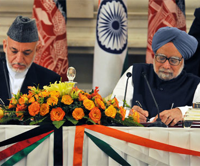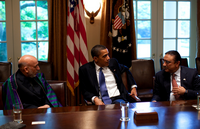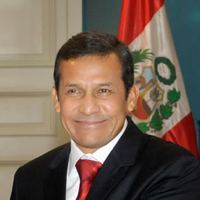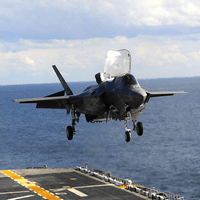
In a move that signals India’s resolve to stay the course in Afghanistan after NATO troops withdraw in 2014, Indian Prime Minister Manmohan Singh signed a Strategic Partnership Agreement (SPA) with visiting Afghan President Hamid Karzai in New Delhi last week. The SPA includes a major security component, with India “agreeing to assist, as mutually determined, in the training, equipping and capacity-building programs for Afghan National Security Forces.” That this was the first security pact of any kind signed by India on the subcontinent was not lost on Islamabad, with former Pakistani President Pervez Musharraf immediately dubbing the pact “anti-Pakistan.” […]








